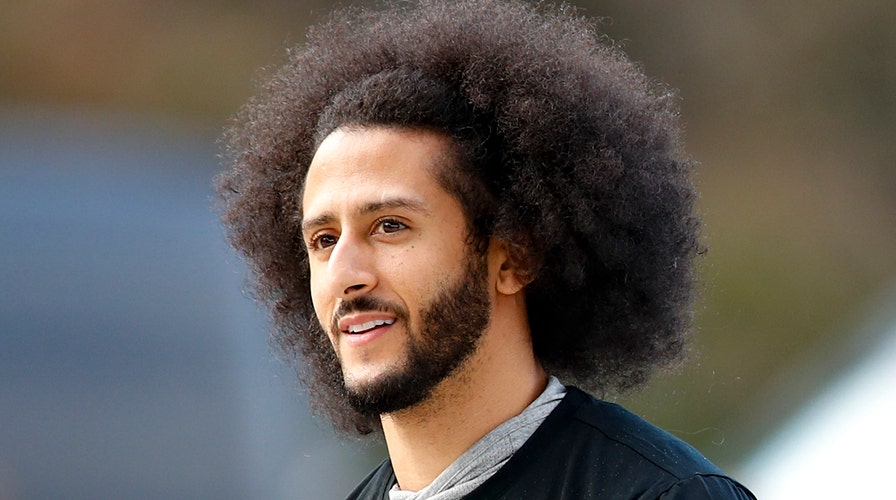Fox News Flash top headlines for April 17
Fox News Flash top headlines are here. Check out what's clicking on Foxnews.com.
Get all the latest news on coronavirus and more delivered daily to your inbox. Sign up here.
Former San Francisco 49ers quarterback Colin Kaepernick announced Thursday that he would be donating $100,000 to a coronavirus relief fund for minority groups.
Kaepernick took to Twitter to pledge his donation to the Know Your Rights Camp COVID-19 Relief Fund.
BRONCOS’ VON MILLER OPENS UP ABOUT CORONAVIRUS DIAGNOSIS: ‘I WAS SHOCKED’
“Join us in our mission to help address the disproportionate affect the pandemic is having on our communities,” he said in the post.
There were 671,425 reported coronavirus cases and 33,286 deaths in the U.S. as of Friday morning. But, according to a Washington Post report from earlier this month, African Americans are dying at a “disproportionately high rate.”
According to the newspaper, majority-black counties have "three times the rate of infection" and about "six times" the rate of deaths compared to majority-white counties.
Kaepernick’s donation is aimed at addressing that disparity that he attributed to “years of structural racism.”
“Black and brown communities are being disproportionately devastated by COVID-19 because of hundreds of years of structural racism,” Kaepernick said in a video posted by the campaign. “That’s why we’ve established the Know Your Rights Camp COVID-19 Fund to help address these issues.”
National Institutes of Health infectious disease expert Dr. Anthony Fauci addressed the issue during a White House press conference on April 7.
CLICK HERE TO GET MORE SPORTS COVERAGE ON FOXNEWS.COM
“As Dr. [Deborah] Birx said correctly, it’s not that they are getting infected more often, it’s that when they do get infected, their underlying medical conditions — the diabetes, hypertension, the obesity, the asthma — those are the kind of things that wind them up in the ICU and ultimately give him a higher death rate,” he said.“When all this is over and, as we said, it will end, we will get over coronavirus, but there will still be health disparities which we really do need to address in the African American community."


